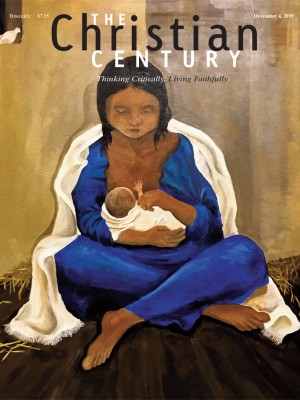Why are rural white Americans willing to prioritize cultural whiteness above all else?
Jonathan Metzl offers useful data and analysis, if not much empathy.
What do white people in America’s heartland think about guns, health care, and education? How are these beliefs connected to racial and cultural identity? And how do they influence community life and health? Jonathan Metzl answers these questions with a compelling mix of scientific inquiry, medical data, and personal interviews. Writing about whiteness as a cultural phenomenon with identifiable traits, he pushes against the traditional conflation of “white” with “American.” His book is particularly important at a time when white resentment is politically resurgent.
Metzl, who grew up in Kansas City and now lives in Tennessee, is a physician and sociologist. He writes movingly about the powerlessness felt by families in Missouri whose loved ones have died by gun violence, often by suicide. Through his conversations with these families, Metzl learns that guns are a powerful marker of belonging in white rural midwestern culture. In this context, guns are “double-edged swords” that serve as symbols of family, privilege, and trauma. The cultural pressure to maintain whiteness, he concludes, makes it hard for people to heal from the effects of gun violence—and just as hard for them to have nuanced conversations about gun control.
Read our latest issue or browse back issues.
In Tennessee, Metzl investigates attitudes about health care and comes to a similar conclusion: whiteness both shapes opinions and sabotages community health. In this section of the book, the author’s experience in medicine shines. He writes in detail about the Affordable Care Act, piercing through the complex categories and verbiage of the insurance industry. Why do states like Tennessee reject federal funding attached to the ACA although that funding would benefit its residents? The answer has a lot to do with the connections people make between whiteness and self-reliance. From a public health perspective, Metzl concludes, “the policies and sentiments that aim to bolster the identity of whiteness also effectively turn whiteness itself into a heightened, perilous, and ever-more-costly category of risk.”
Metzl concludes the book with research and interviews in Kansas focused on education. After a detailed statistical analysis of cuts in education funding in that state, Metzl reiterates the book’s larger point: that the defense of cultural whiteness ends up harming white rural midwestern Americans. Summing up his analysis of conversations he had with people in Kansas, he writes: “American whiteness itself and its ever-perilous, double unconscious hold on power remained the condition that always, always needed to be defended.”
Given his background and education, Metzl is well poised to investigate white rural midwesterners’ attitudes on guns, health care, and education. But there are some glaring socioeconomic and cultural differences between Metzl and his interviewees, and the fact that he seems unaware of them is startling given the book’s subject.
Metzl begins the book in Cape Girardeau, a town in the Missouri Boot-heel (the part of the state that dips down between Arkansas and Tennessee). While his midwestern roots would seem to inoculate him against charges of “parachute journalism,” Metzl does the next closest thing: he flies into Cape Girardeau on a propeller plane from St. Louis, although it’s less than a two-hour drive. He doesn’t acknowledge that the cost of such a flight would be prohibitive for most Missourians.
The way Metzl discusses his childhood in the Kansas City area also reveals his elite perspective. After mentioning that his parents rented a horse for his brother’s birthday party, he talks about moving into a “more expansive turn-of-the-century house” on the Missouri side of the border, two blocks from State Line Road. This neighborhood is a wealthy enclave where most of the children attend private schools, as Metzl did.
Metzl portrays his interviewees as a separate class of people he’s determined to study and analyze, not as fellow white Americans with whom he has something in common despite class differences. This is reflected in the book’s structure: Metzl separates the interview transcripts from his own commentary on them, and he doesn’t include quotes from the interviewees in his analysis. By separating his voice from the voices of the poor midwestern white people he writes about, Metzl implicitly encourages his readers to do the same, exacerbating the class divides that contribute to politics of white rural despair. If he’s right that racial resentment among poor white people is partly attributable to stark class divisions among white people, it also seems likely that he’s inadvertently contributing to the building of that resentment.
Dying of Whiteness will resound with many well-educated liberals who have been wondering about white rural midwesterners’ intransigent support for the conservative policies that end up hurting them. But others may be put off by Metzl’s seeming obliviousness to his own privilege or by his failure to integrate the voices of his interviewees into his overall narrative. Without building any empathy for his subjects, he’s doing little to bridge the gaps his research reveals. White voters across class lines in conservative midwestern states will likely continue to reject policies and politics that benefit working-class and poor people.
Metzl says as much near the end of the book: “Liberals also frequently fail to explain adequately the everyday benefits of their initiatives for everyday people in ways that resonate or that address historically based tensions or concerns.” He adds, “It does not have to be this way.” But it likely will remain this way—at least until the people who ask questions about white, working-class, rural midwesterners include white, working-class, rural midwesterners’ voices in the answers.






